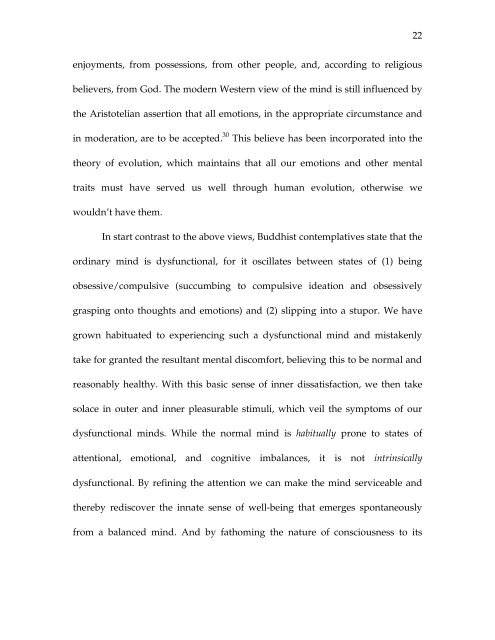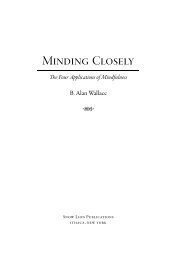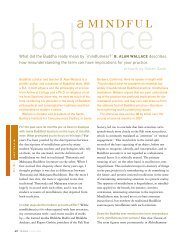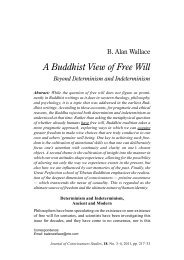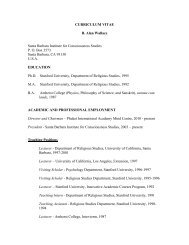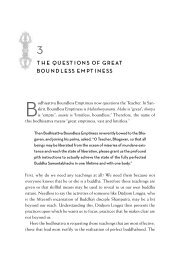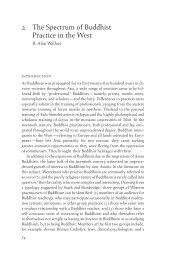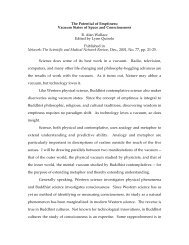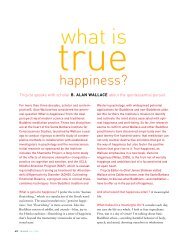“A Science of Consciousness: Buddhism (1), the ... - B. Alan Wallace
“A Science of Consciousness: Buddhism (1), the ... - B. Alan Wallace
“A Science of Consciousness: Buddhism (1), the ... - B. Alan Wallace
You also want an ePaper? Increase the reach of your titles
YUMPU automatically turns print PDFs into web optimized ePapers that Google loves.
enjoyments, from possessions, from o<strong>the</strong>r people, and, according to religious<br />
believers, from God. The modern Western view <strong>of</strong> <strong>the</strong> mind is still influenced by<br />
<strong>the</strong> Aristotelian assertion that all emotions, in <strong>the</strong> appropriate circumstance and<br />
in moderation, are to be accepted. 30 This believe has been incorporated into <strong>the</strong><br />
<strong>the</strong>ory <strong>of</strong> evolution, which maintains that all our emotions and o<strong>the</strong>r mental<br />
traits must have served us well through human evolution, o<strong>the</strong>rwise we<br />
wouldn’t have <strong>the</strong>m.<br />
In start contrast to <strong>the</strong> above views, Buddhist contemplatives state that <strong>the</strong><br />
ordinary mind is dysfunctional, for it oscillates between states <strong>of</strong> (1) being<br />
obsessive/compulsive (succumbing to compulsive ideation and obsessively<br />
grasping onto thoughts and emotions) and (2) slipping into a stupor. We have<br />
grown habituated to experiencing such a dysfunctional mind and mistakenly<br />
take for granted <strong>the</strong> resultant mental discomfort, believing this to be normal and<br />
reasonably healthy. With this basic sense <strong>of</strong> inner dissatisfaction, we <strong>the</strong>n take<br />
solace in outer and inner pleasurable stimuli, which veil <strong>the</strong> symptoms <strong>of</strong> our<br />
dysfunctional minds. While <strong>the</strong> normal mind is habitually prone to states <strong>of</strong><br />
attentional, emotional, and cognitive imbalances, it is not intrinsically<br />
dysfunctional. By refining <strong>the</strong> attention we can make <strong>the</strong> mind serviceable and<br />
<strong>the</strong>reby rediscover <strong>the</strong> innate sense <strong>of</strong> well-being that emerges spontaneously<br />
from a balanced mind. And by fathoming <strong>the</strong> nature <strong>of</strong> consciousness to its<br />
22


